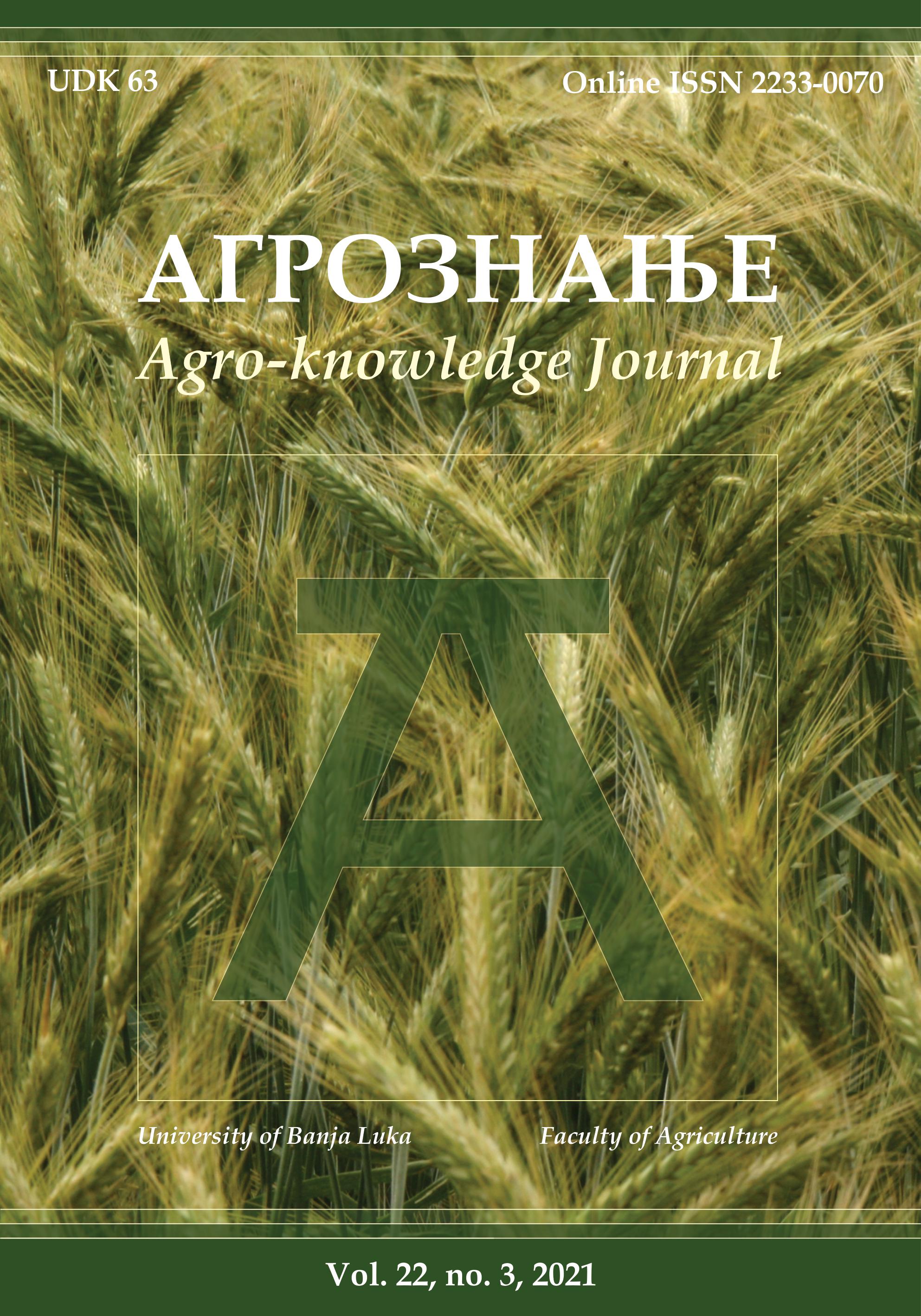Qualitative scenario analysis of demand-driven curriculum on agricultural extension in Nigeria
Квалитативна анализа сценарија за курикулум пољопривредног савјетовања заснованог на потражњи у Нигерији
DOI:
https://doi.org/10.7251/AGREN2103087OAbstract
A qualitative scenario analysis of demand-driven curriculum on agricultural extension in Nigeria was performed among farmers, extension agents, input dealers, NGOs, alumni and potential students, ministry of agriculture, agricultural cooperatives, and lecturers from Universities and Colleges of Agriculture. The model of scenario analysis applied involved scenario scope, key drivers, outcomes, scenario construction, and expert consultation. The findings highlight that the key drivers and outcomes are high and low pool of school leavers for enrolment in the SAFE program, Demand Driven Curriculum (SDDC), Supervised Enterprise Project (SEP), Enterprise Centre (EC) and any forms of combination as elements of components of the SAFE program that universities are willing to adopt into the training curriculum; mid-career trainees alone, high school graduates alone, high school graduates and mid-career trainees the same class, the same curriculum different classes and high school graduates and mid-career trainees in different classes as forms of adaptation of the SAFE program and blended learning, distance learning, online platform, face to face, block teaching, weekend courses, summer programs as modes of delivery. The paper concludes the training should be packaged for the benefits of actors along the agricultural extension value-chain by establishing different forms of changes and scenarios.
Key words: training, learning, scenario-analysis, curriculum, agriculture.

